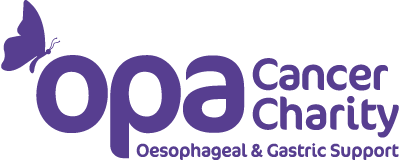Oesophageal cancer is one of the fastest-growing cancers in the United States and has been for the past 30-40 years, with cases increasing four-fold in that time.
A large part of this growth has been related to increasing obesity and injury to the Oesophagus from reflux disease or heartburn, which may be related to larger meal sizes over the last several decades.
While Oesophageal cancer is much rarer than colon cancer, lung cancer, breast cancer or prostate cancer, it is much more difficult to treat as it is found typically at a later stage. It also may not respond to surgical or medical treatments quite as well as other cancers.
When esophageal cancer is discovered, usually a patient has developed trouble swallowing solid food. This happens over several weeks and may not be noticed until the cancer has grown to a size where it may have spread to local lymph nodes and will likely require chemotherapy and radiation treatments to control the spread – before having surgery.
The complex, fast-progressing and deadly nature of the disease is why it is recommended to have Oesophageal cancer treated at an expert center, where there are experienced teams working with multi-modal treatments. At such a facility, the medical and surgical staff will discuss each case in a multi-specialty setting, whether the patient comes from inside or outside the health system.
As a surgeon who treats Oesophageal cancer regularly, I can tell you that a patient presents with unique anatomy and cancer biology, which needs a tailored approach to treatment with chemotherapy, radiation and surgery.
Currently, minimally invasive surgery is the gold standard for surgical treatment of Oesophageal cancer. Most patients are candidates for this approach which, with the surgical robot or minimal access incisions, lessens the surgical trauma to the patient as much as possible. This has translated to less time in the hospital and overall faster recovery.
These are some of the high points of Oesophageal cancer development and treatment at the current time. High-caliber research teams from around the world are working to come up with more targeted and effective drug therapies overcome this cancer.
If you or a loved one are having trouble swallowing and have a history of reflux, it could be (although rarely) Oesophageal cancer and should be checked with a visit to your doctor or health team for further investigation. It will hopefully be something less serious, but it’s best to rule out a difficult health problem sooner rather than later.
Additional Resources
Learn more about esophageal cancer.
View esophageal cancer clinical trials at Baylor.
-By Dr. Philip Carrott, a thoracic surgeon and assistant professor of surgery in the Division of General Thoracic Surgery at Baylor College of Medicine
This article is from Baylor College of Medicine – https://blogs.bcm.edu/2020/04/23/what-you-should-know-about-esophageal-cancer/


